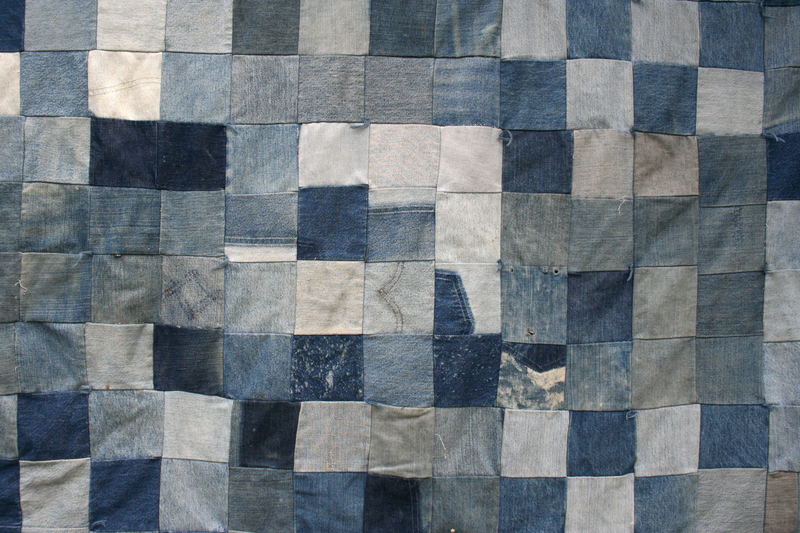Cut Costs When Getting Rid of Heavy, Bulky Waste Items
Disposing of heavy, bulky waste items such as furniture, appliances, construction debris, or yard equipment can be both a logistical challenge and a financial burden. Whether you're renovating your home, clearing out an office, or just doing some serious spring cleaning, you might be wondering how to cut costs when getting rid of large waste items. Thankfully, there are smart, cost-effective strategies to streamline the process and keep more money in your pocket.

Understanding Bulky Waste Disposal Challenges
Typical bulky waste disposal involves more considerations than regular trash. These items are often:
- Too large or heavy for standard curbside pickup
- Require special handling or equipment
- May need to be disposed of according to local regulations
- Can result in expensive hauling or landfill fees
Evaluate Your Waste: What Are You Getting Rid Of?
The first step towards saving money is evaluating what type of bulky waste you need to discard. Here are some common categories:
- Furniture: Sofas, mattresses, tables, chairs, dressers
- Appliances: Refrigerators, ovens, washing machines, dishwashers
- Electronic Waste: TVs, monitors, printers, computers
- Yard Debris: Tree limbs, branches, large plant pots
- Construction Materials: Drywall, wood, insulation, tiles
Different items have different disposal options and costs. Recognizing this helps you leverage the cheapest, most efficient solution for each type of waste.
Top Strategies to Cut Costs When Disposing of Bulky Waste
1. Explore Free and Low-Cost Pickup Services
Before paying a private hauler, check if your local municipality or community offers free bulky item pickup. Many cities allow for residents to schedule annual or semi-annual pickups at minimal or no cost, particularly for items such as mattresses and appliances.
- Visit your city's sanitation or waste management website for details.
- Follow their guidelines for preparation and placement.
Tip: Book early, as free pickup slots can fill up quickly!
2. Donate Usable Items
Not all bulky waste needs to end up in landfill. If your item is gently used, consider donating to a local charity, thrift store, or non-profit. Many organizations, such as Habitat for Humanity ReStore, Goodwill, or Salvation Army, offer free pickup services for large furniture and appliances.
- Saves you hauling costs
- Possibility of a tax deduction
- Helps someone in need
3. Sell or Give Away Online
Platforms like Facebook Marketplace, Craigslist, Freecycle, and Nextdoor are excellent for posting items for sale--or even for free. Many people are eager to snag a deal, especially if they arrange their own pickup. This approach can sometimes offset your disposal costs or even earn you a few extra dollars.
- Take clear photographs of your item
- Write a concise, honest description
- Specify that pickup is required and when
4. Break Down Items Yourself
Hauling companies and landfills often price disposal by size or volume. Reduce your cost when disposing of large waste objects by breaking them into smaller, manageable pieces.
- Disassemble furniture, remove table legs, or separate mattress from box spring
- Remove metal or recyclable components (many can be recycled for free)
- Bag small debris to fit more into standard trash or recycling bins
Important: Wear gloves and use tools safely!
5. Use a Trash or Dumpster Bag Service
Many waste management companies offer heavy-duty disposal bags (sometimes called "dumpster bags" or "Bagster" bags). You buy a bag at the hardware store, fill it with your bulky waste, and schedule a pickup. This is often cheaper than a full dumpster rental, especially for moderate loads like a couch, mattress, or bathroom remodel debris.
- Cheaper for small-to-medium projects
- No long-term dumpster rental fees
- Convenient drop-off and collection
6. Rent a Dumpster Only If Needed
If you have significant quantities of heavy or bulky waste, a dumpster rental may be unavoidable. However, you can reduce dumpster rental costs by:
- Splitting the dumpster with neighbors or friends with similar disposal needs
- Choosing the right size (don't pay for more space than you need!)
- Booking for the shortest required period
Check for included weight limits and potential overage fees before booking.
7. Recycle When Possible
Many landfills charge premiums for heavy waste, but recycling centers may accept some bulky items--often for free or a reduced fee. Items frequently accepted for recycling include:
- Metal (bed frames, appliances, bikes)
- Electronics (old TVs, computers)
- Cardboard and clean wood
Tip: Contact local recyclers to check accepted materials and fees.
8. Haul Items Yourself
If you own or can borrow a truck (or trailer), you may be able to save substantially by hauling your own bulky waste to the dump or transfer station. Consider:
- Weighing landfill fees versus paying for pickup (see if your city offers resident discounts)
- Calling ahead to confirm hours and accepted items
- Pooling loads with neighbors to split costs
Remember to secure your load and check local tie-down requirements!
Specialized Bulky Waste: Appliances, Electronics, and Hazardous Materials
Certain large items require additional care to comply with regulations and avoid extra fees:
- Appliances: Refrigerators and air conditioners contain refrigerants that must be extracted by certified technicians. Check if your city offers an appliance recycling program--often with free or reduced-rate disposal.
- Electronics: Never landfill e-waste; take it to a certified recycler. Many electronics shops and community collection events offer free e-waste drop-off.
- Hazardous Waste: Paint, chemicals, and batteries are not accepted with bulky waste. Use your local household hazardous waste facility to avoid fines and protect the environment.
Cost Comparison: Bulky Waste Removal Options
To maximize your savings and choose the best disposal method, compare the typical costs and pros/cons below:
| Disposal Method | Average Cost | Best For |
|---|---|---|
| Municipal Pickup | Free - $60/item | Residents with a few qualifying items |
| Donation Pickup | Free | Usable furniture & appliances |
| Online Giveaway/Sale | Free (may even earn money) | Good-condition items |
| Junk Removal Company | $100 - $800 or more | Large quantities, heavy lifting, convenience |
| Dumpster Bag | $150 - $350 | Small remodels, moderate waste loads |
| Dumpster Rental | $300 - $700/week | Major renovations or cleanouts |
| DIY Hauling | $20 - $100 (plus possible vehicle rental) | Pickup-ready, small loads |
Note: Costs vary by region, size, and weight. Always check with your local providers.
Hidden Fees to Watch For
To truly reduce costs when disposing of bulky waste, be wary of surprise charges:
- Weight overages for dumpsters and Bagsters
- Extra handling fees for certain materials (mattresses, tires, electronics)
- Permits for placing dumpsters on the street
- Trip charges if items are not ready for pickup
- Hazardous materials fines
Always ask for a full estimate in writing before hiring any junk removal or hauling service.
Tips for Reducing Your Bulky Waste Volume and Costs
- Plan ahead: Schedule all your large disposals at once to maximize bulk discounts
- Consolidate: Merge loads with neighbors for shared savings
- Avoid peak seasons: Costs rise during 'spring cleaning' and 'moving' months
- Prep your items: Disassemble, stack, and bundle for easier hauling
- Know the rules: Avoid fines by following local trash guidelines

Frequently Asked Questions about Cutting Costs on Bulky Waste Disposal
What is the cheapest way to get rid of large waste items?
Often, the cheapest approach is using free municipal bulky pickup, donating, or giving away usable items. For the rest, consider breaking down items to fit in standard trash or leveraging community recycling events.
How can I legally dispose of heavy or hazardous materials?
Check local regulations; most cities offer special hazardous waste drop-off points for paints, chemicals, or electronics. Appliances should only be handled by certified recyclers.
How can I minimize junk removal service fees?
By prepping and consolidating your waste, having items ready for pickup, and scheduling during non-peak times, you can negotiate better rates. Always get quotes from several providers!
Conclusion: Save Money and Protect the Planet
Getting rid of heavy, bulky waste items doesn't have to empty your wallet. By exploring donation, recycling, and free community resources--and by planning carefully--you can minimize costs and maximize environmental benefit. Remember, every item you keep out of the landfill (by donating, selling, or recycling) not only saves you money, but also helps protect our planet for future generations.
Make a checklist based on the tips above, compare your local options, and you'll have a cleaner space--and a thicker wallet--in no time!
